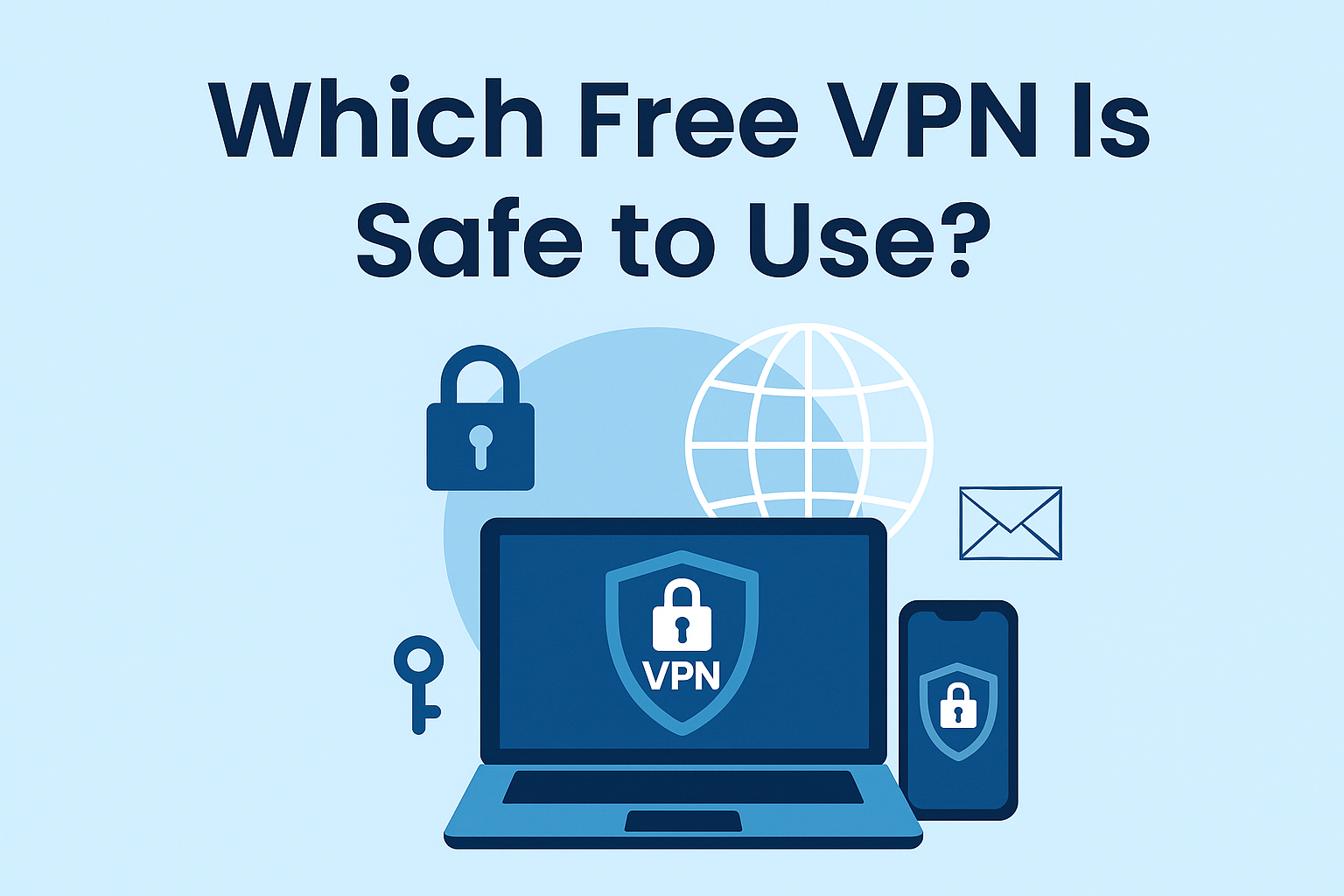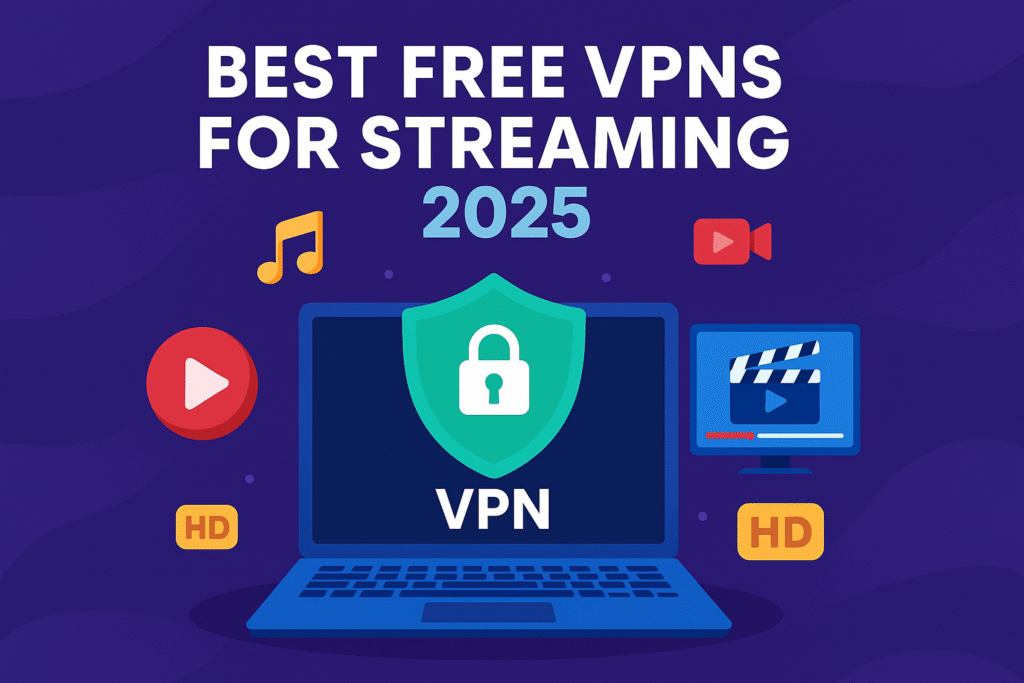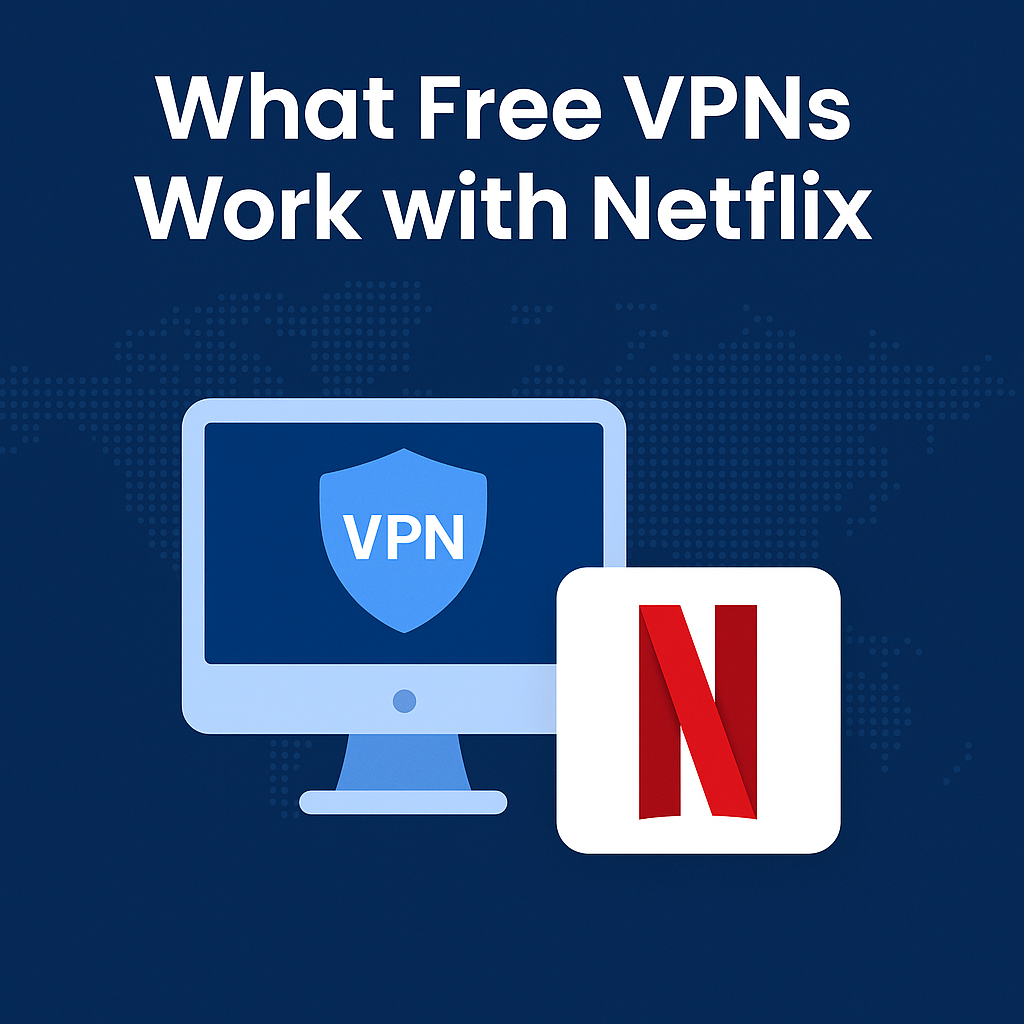Introduction: Which Free VPN Is Safe to Use?

When it comes to online privacy and security, VPNs (Virtual Private Networks) have become essential. They allow users to mask their IP address, encrypt their traffic, and access blocked content worldwide. But while premium VPNs dominate the market, many users still ask: which free VPN is safe to use?
The truth is, free VPNs are a double-edged sword. Some provide genuine privacy with strict no-logs policies and strong encryption, while others compromise safety by logging data, injecting ads, or selling user information. In this guide, we’ll explore the risks of free VPNs, highlight safe options available in 2025, and explain when upgrading to a paid VPN makes sense.
Why People Look for Free VPNs
Free VPNs are appealing for obvious reasons: they cost nothing, are easy to download, and promise instant online anonymity. Many users turn to them to:
- Access geo-blocked content (like Netflix or YouTube).
- Protect personal data on public Wi-Fi.
- Hide activity from internet service providers.
- Test VPN services before committing to a subscription.
The convenience of not paying is tempting—but as the saying goes, if something is free, you are the product.
The Appeal of “Free” vs Paid VPNs
- Free VPNs: Basic privacy, limited servers, data caps, slower speeds.
- Paid VPNs: Unlimited bandwidth, stronger security, 24/7 support, thousands of global servers.
While free VPNs give beginners a taste of online protection, they are rarely designed for heavy streaming, torrenting, or long-term privacy. Kaspersky warms that free VPNs often come with hidden limitations and privacy concerns.
How VPNs Work (Quick Overview)
VPNs create a secure, encrypted tunnel between your device and a remote server. All traffic passes through this server, masking your IP and location. For example, if you connect from New York but choose a VPN server in London, websites will think you’re browsing from the U.K.
This process protects against:
- Hackers on public Wi-Fi.
- ISP tracking and throttling.
- Geo-restrictions on content.
The Risks of Free VPNs
Data Logging and Privacy Concerns
Some free VPNs secretly log user activity and sell data to advertisers. Instead of protecting your privacy, they monetize it.
Malware and Ad Injections
Studies show many free VPN apps contain malware or inject ads into browsing sessions—exposing users to even more risks.
Bandwidth Limits and Speed Throttling
Most free VPNs impose strict caps (500MB–10GB per month), making them impractical for streaming or large downloads.
Hidden Costs of Free VPNs
While you may not pay with money, you pay with:
- Personal data.
- Slower speeds.
- Restricted access.
Are All Free VPNs Unsafe?
Not all. Some legitimate VPN companies provide free tiers as “freemium models”—safe but limited versions of their paid services. These are generally safer because they are backed by established brands with strong reputations.
Key Features That Make a Free VPN Safe
When evaluating free VPNs, look for:
- Strict no-logs policy.
- Transparent privacy policy.
- Strong encryption (AES-256).
- Reasonable data allowance.
- Independent security audits.
- Reputable parent company.
Free VPNs That Are Considered Safe in 2025
Feature | Express VPN | Nord VPN | Surfshark | Proton VPN |
Overall Rating | 4.90/5 | 4.80/5 | 4.7/5 | 4.5/5 |
Best For | Best overall | Speed & security | Unlimited Devices | Privacy & Open |
Speed | Ultra Fast | Very Fast | Fast | Meduin Fast |
Streaming(Netfix) | Yes | Yes | Yes | Limited |
Device Allowed | 8 | 10 | Unlimited | 10 |
Money Back Gurantee | 30 Days | 30 Days | 30 Days | 30 Days |
Pricing | $6.67/mo | $3.29/mo | $2.49/mo | $4.49/mo |
Deal |
Proton VPN (Free Plan) – The Leader in Safety
- Unlimited data (rare for a free VPN).
- Backed by ProtonMail, a privacy-first company in Switzerland.
- Limited servers (U.S., Japan, Netherlands).
- Safe and transparent, though speeds can dip during peak hours.
Windscribe Free – A Balance of Features
- 10GB/month data.
- Servers in 10+ countries.
- Strong ad-blocking features.
- Netflix works occasionally, but inconsistent.
Hide.me Free – Focused on Privacy
- 10GB/month with strong no-logs policies.
- No ads, solid speeds.
- Works with Netflix on select servers.
Atlas VPN Free – Backed by Nord Security
- Owned by the Nord Security family (same as NordVPN).
- 5GB/month data allowance.
- Simple, beginner-friendly apps.
- Limited servers but reliable privacy.
TunnelBear Free – User-Friendly Option
- 500MB/month only.
- Extremely easy to use.
- Servers in 40+ countries.
- Great for occasional browsing, not for streaming.
Which Free VPNs to Avoid?
- Hola VPN: Peer-to-peer model exposes user devices to strangers.
- Betternet: Known for aggressive logging and ads.
- SuperVPN & Thunder VPN: Flagged for malware risks.
If a VPN is free, has vague privacy policies, or is based in a country with weak privacy laws, avoid it.
Differences Between Free and Freemium Models
- Free VPNs: Fully free, often funded by ads or data sales.
- Freemium VPNs: Safe free versions of paid VPNs, designed to upsell.
Stick with freemium providers (like ProtonVPN or Windscribe).
When a Free VPN Might Be Enough
- Checking email on public Wi-Fi.
- Light browsing.
- Occasional Netflix access.
When You Should Upgrade to a Paid VPN
- Regular streaming (Netflix, Disney+, Hulu).
- Online gaming.
- Torrenting and large downloads.
- Advanced privacy needs (journalists, activists).
Safer Alternatives to Free VPNs
- Paid VPN trials: Most top providers offer 30-day money-back guarantees.
- Cheap long-term plans: Services like Surfshark cost as little as $2–3/month.
Best Paid VPNs for Safety and Performance
- ExpressVPN: Fast, secure, best for Netflix.
- NordVPN: Feature-rich, strong privacy.
- Surfshark: Budget-friendly, unlimited devices.
Tips for Safely Using Free VPNs
- Read the privacy policy carefully.
- Choose trusted brands only.
- Test speed and leaks (using IP and DNS leak tools).
- Never provide personal data to unknown VPNs.
How to Test If Your Free VPN Is Safe
- Run a DNS/IP leak test.
- Check speed consistency.
- Monitor data use.
- Read external reviews and audits.
FAQs
Q: Is it illegal to use a free VPN?
No. VPNs are legal in most countries.
Q: Do free VPNs work with Netflix?
Some, like ProtonVPN and Windscribe, occasionally do. But not consistently.
Q: Which free VPN has unlimited data?
ProtonVPN is the main safe option.
Q: Can free VPNs protect me on public Wi-Fi?
Yes, but only from trusted providers.
Conclusion: Which Free VPN Is Safe to Use in 2025?
If you want to know which free VPN is safe to use, the list is short: ProtonVPN, Windscribe, Hide.me, Atlas VPN, and TunnelBear. These providers offer freemium models backed by reputable companies, making them safer than shady free alternatives.
However, free VPNs come with trade-offs—limited data, fewer servers, slower speeds, and inconsistent streaming access. For casual browsing, they’re fine. But if you value true privacy, consistent streaming, and strong protection, upgrading to a premium VPN is the smarter move.
Some VPNs unblock Netflix, but that doesn’t always mean they’re secure. Discover
which free VPN is safe to use before making your choice


